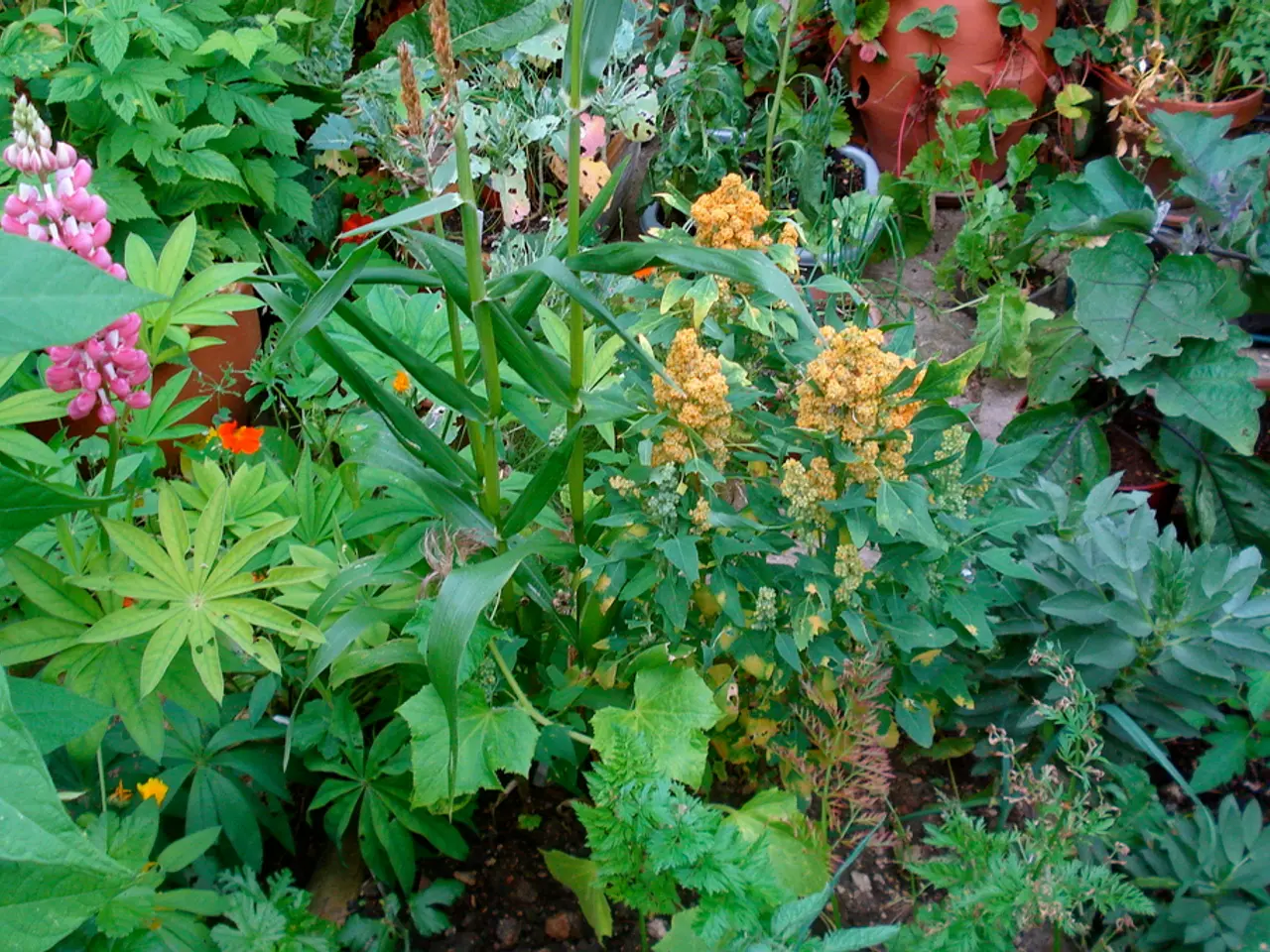Urgent Action Needed for Medicinal Plants: National Medicinal Plants Board Chief Warns About Potential Threat to Our Future
In a significant move towards promoting sustainable livelihoods and healthcare, the Manav Rachna International Institute of Research and Studies (MRIIRS) has inaugurated the Medicinal Garden 'Eden of Elixirs'. This unique garden, established by the Manav Rachna Centre for Medicinal Plant Pathology (MRCMPP) with support from the National Medicinal Plants Board (NMPB), Ministry of AYUSH, Government of India, houses over 130 species of medicinal and aromatic plants.
Dr. Mahesh Kumar Dadhich, CEO of the National Medicinal Plants Board, emphasised the importance of preserving medicinal plants for future generations. According to Dr. Dadhich, every vegetable and fruit we consume has medicinal value, and the conservation of medicinal plants is crucial for maintaining health and nutrition.
The Eden of Elixirs is more than just a garden; it serves as a living repository preserving biodiversity, encouraging the use of medicinal plants for health maintenance, and strengthening community knowledge and connection to nature. Initiatives like this focus on cultivating and preserving medicinal plants to support community well-being and sustainable healthcare by providing access to natural remedies and fostering education about traditional plant-based medicines.
The garden is designed in the shape of a flower with eight petals, each representing different systems of the human body like oral health, digestive health, and cancer care. The centre of the flower houses a pond with a Blue Water Lily (Neel Kamal). MRCMPP is using this Institutional Medicinal Garden to develop innovative herbal products and propagate the use of medicinal plants.
Dr. Nidhi Didwania, Director of MRCMPP and Principal Investigator of the project, highlighted the educational significance of the garden. The Eden of Elixirs is a living lab where students, researchers, and communities connect with nature, explore bioactive compounds, and contribute to the global conversation on sustainable healthcare.
The event marked the launch of "A Comprehensive Book on Medicinal Plants," edited by Dr. Didwania and Dr. Jeetendra Kumar. The occasion reaffirmed MRIIRS's dedication to the United Nations Sustainable Development Goals, particularly SDG 2 (Zero Hunger), SDG 3 (Good Health and Well-being), SDG 13 (Climate Action), and SDG 15 (Life on Land).
Future plans include establishing similar herbal gardens in 700 schools under government initiatives. Dr. Dadhich advocates for the replication of community-driven initiatives like the Eden of Elixirs in schools and community centers nationwide.
Preserving medicinal plant species, promoting sustainable healthcare, enhancing community health and well-being, and supporting mental and physical health benefits are significant roles that medicinal gardens like the Eden of Elixirs play. Such gardens are critical for integrating traditional knowledge and ecological sustainability into modern health practices, enhancing resilience at both individual and community levels.
- Students, researchers, and communities can explore the medicinal value of various plants and contribute to the development of innovative herbal products in a setting like the Eden of Elixirs, which serves as a living lab for education in health-and-wellness.
- The arrivals of medicinal gardens, such as the Eden of Elixirs, are pivotal for the integration of traditional knowledge and ecological sustainability into modern health practices, promoting environmental-science and fostering community knowledge and connection to nature.
- The Manav Rachna International Institute of Research and Studies, with projects like the "Comprehensive Book on Medicinal Plants" and plans to establish similar gardens in schools, actively supports the United Nations Sustainable Development Goals, focusing on good health and well-being, zero hunger, climate action, and life on land.








